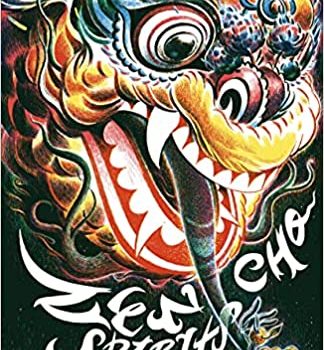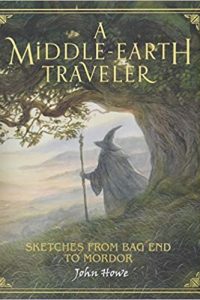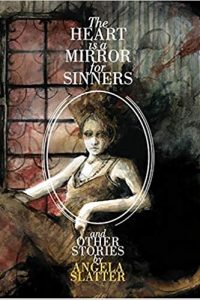Gary K. Wolfe Reviews Spirits Abroad by Zen Cho
 Spirits Abroad, Zen Cho (Small Beer 978-1-618-73186-9, $17.00, 352pp, tp), August 2021.[Expanded from the 2015 edition.]
Spirits Abroad, Zen Cho (Small Beer 978-1-618-73186-9, $17.00, 352pp, tp), August 2021.[Expanded from the 2015 edition.]
Before Zen Cho earned well-deserved popularity for her revisionist Regency-era fantasies Sorcerer to the Crown and The True Queen, she received the 2015 Crawford Award for her collection Spirits Abroad, from the Malaysian publisher Fixi Novo. It seems fair to say that not a lot of international readers got hold of that book, but even for those who did, the new edition from Small Beer Press is far more substantial, containing 19 stories to that original edition’s seven. Among the additions is the Hugo-winning “If At First You Don’t Succeed, Try, Try Again”, a moving and delightful saga of an age-old aspiring dragon (called an imugi) and its sadly mortal human friend, but that’s not the only example of the versatility of Cho’s talent on display here. We do meet another dragon, in the hilarious “Prudence and the Dragon”, in which London is transformed by magic – pigeons growing human bodies and entering the workforce (“they had a firm grasp of commercial realities, and never went on Facebook”), buses turning into cats, and most of all a giant dragon curling itself around the famed Gherkin building. Prudence, having grown up in Malaysia, is less taken aback than most Brits, because “In Britain people were far too sophisticated to pray to their spirits. Instead they wrote articles about them.” The main part of the story concerns the dragon’s infatuation with the rather incurious Prudence, even though in his human form he sometimes seems like a parody of toxic masculinity.
That cultural contrast between British and Malaysian (or sometimes Chinese) approaches to the spirit world is perhaps the most fascinating recurring theme in the collection. In “The Mystery of the Suet Swain”, a group of Malaysian students at Cambridge are intrigued by a mysterious character on Facebook who seems to know all of them, and who turns out to be an orang minyak, one of an impressively rich variety of Malaysian supernatural figures that Cho introduces us to. (In another story, “First National Forum on the Position of Minorities in Malaysia”, a disembodied voice called an orang bunian demands official status as a recognized minority). Two stories, “Rising Lion – The Lion Bows” and “Seven Star Dream”, feature a Chinese dance troupe in England whose secret mission is ghostbusting – but we eventually learn that their founder, once a child haunted by ghosts and vampires, has gone off to earn his fortune in London at Goldman Sachs. The supernatural tables are turned a bit in “One-Day Travelcard for Fairyland”, in which a group of Malaysian students at a remote English university are besieged by the local fairies after one of the students accidentally kills one by stepping on it.
As should be obvious by now, the wit familiar from Cho’s Sorcerer Royal novels and her more recent Black Water Sister (reviewed here in May) is richly on display. Most of the stories discussed so far are from the middle section of the book, to which Cho has given the subtitle “There”, perhaps implying the often British settings. The opening section, “Here”, is more focused on Malaysia, and the collection’s lead story even echoes some of the family themes of Black Water Sister. In “The First Witch of Damansara”, Vivian, now living in a “modern Western country,” is summoned home when her grandmother dies, to find the visit complicated not only by the fact that her grandmother has become a vampire, but by some serious family disapproval over clothing choices. “The House of Aunts” is essentially a tale of a vampire falling in love, but with a somewhat feminist slant in the form of the aunts who provide her support system. Not all Cho’s creatures are so fearsome, however. “The Guest” features a talking cat helping a mid-level marketing manager with her professional and personal problems, while it’s a talking, wish-granting fish who strikes a tough bargain with a student in “The Fish Bowl”. A couple of the stories are reminiscent of the mordant ironies of Roald Dahl or John Collier. The title character of “Odette” thinks she has found a way to escape the abuse of her awful Uncle Henry by inheriting his huge house, until she learns the house may have other plans. “Balik Kampung” imagines that residents of Hell can revisit the living world for one month a year, and all Lydia wants to do is revisit her beloved husband in Penang. Bad idea, it turns out.
The most stylistically adventurous, even experimental stories are included in the final section, “Elsewhere”, in which supernatural figures may be the main characters – a minor earth spirit narrates “The Earth Spirit’s Favorite Anecdote”, while a tricksterish Monkey King confronts a quite traditional Faerie Queen in “Monkey King, Faerie Queen”. My favorite story here is also the only one in the book which hints at science fiction. In “The Four Generations of Chang E”, the title character escapes a nightmarish, dying Earth by winning a lottery to migrate to a moon colony, where she learns to live with moon rabbits and eventually has herself surgically altered into a Moonite with “long, ovoid eyes.” She never escapes family responsibilities, though, and, after her mother dies, returns to Earth with the ashes. There she gains an insight that seems to haunt several of Cho’s stories, including perhaps Black Water Sister: “Past a certain point, you stop being able to go home. At this point, when you have got this far from where you were from, the thread snaps. The narrative breaks. And you are forced, pastless, motherless, selfless, to invent yourself anew.” The tension on that thread of narrative, which adds subtle meaning to the title Spirits Abroad, is what gives Cho’s short fiction, even at its wittiest, a kind of haunting – and haunted – sensibility.
Gary K. Wolfe is Emeritus Professor of Humanities at Roosevelt University and a reviewer for Locus magazine since 1991. His reviews have been collected in Soundings (BSFA Award 2006; Hugo nominee), Bearings (Hugo nominee 2011), and Sightings (2011), and his Evaporating Genres: Essays on Fantastic Literature (Wesleyan) received the Locus Award in 2012. Earlier books include The Known and the Unknown: The Iconography of Science Fiction (Eaton Award, 1981), Harlan Ellison: The Edge of Forever (with Ellen Weil, 2002), and David Lindsay (1982). For the Library of America, he edited American Science Fiction: Nine Classic Novels of the 1950s in 2012, with a similar set for the 1960s forthcoming. He has received the Pilgrim Award from the Science Fiction Research Association, the Distinguished Scholarship Award from the International Association for the Fantastic in the Arts, and a Special World Fantasy Award for criticism. His 24-lecture series How Great Science Fiction Works appeared from The Great Courses in 2016. He has received six Hugo nominations, two for his reviews collections and four for The Coode Street Podcast, which he has co-hosted with Jonathan Strahan for more than 300 episodes. He lives in Chicago.
This review and more like it in the August 2021 issue of Locus.
 While you are here, please take a moment to support Locus with a one-time or recurring donation. We rely on reader donations to keep the magazine and site going, and would like to keep the site paywall free, but WE NEED YOUR FINANCIAL SUPPORT to continue quality coverage of the science fiction and fantasy field.
While you are here, please take a moment to support Locus with a one-time or recurring donation. We rely on reader donations to keep the magazine and site going, and would like to keep the site paywall free, but WE NEED YOUR FINANCIAL SUPPORT to continue quality coverage of the science fiction and fantasy field.
©Locus Magazine. Copyrighted material may not be republished without permission of LSFF.








This is a useful and excellent share. Will definitely share it with people I know.